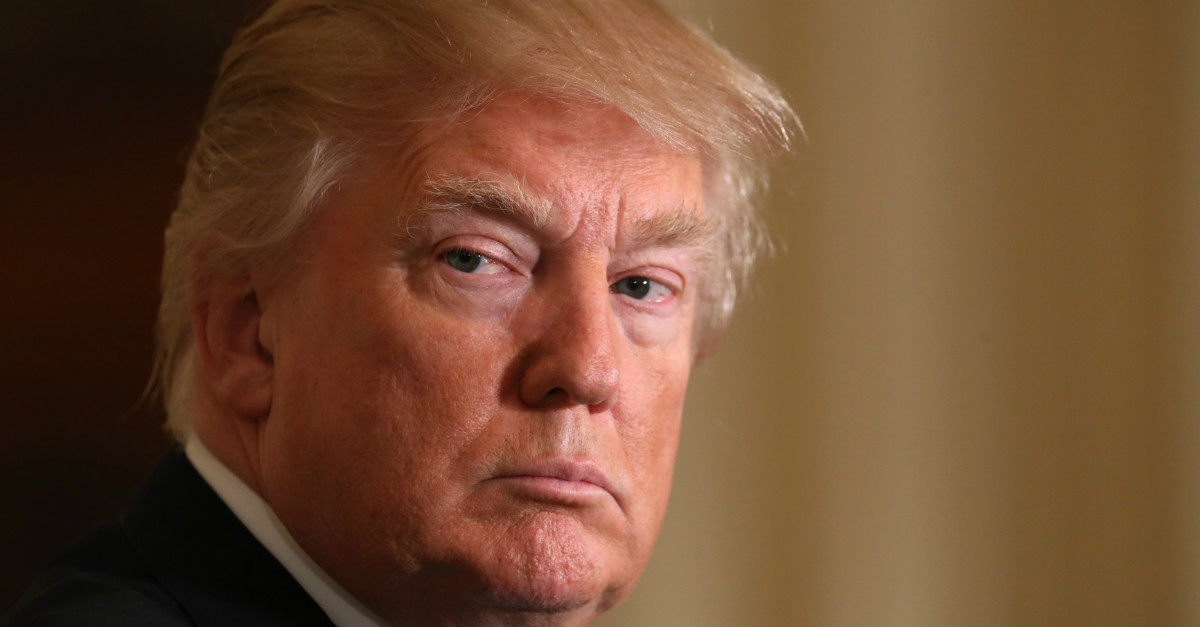William Perry is something of a polymath: a mathematician, expert on signals intelligence and, most famously, secretary of defense during the Clinton administration. In 1999, he met with the North Korean regime and one of Kim Jong-il’s generals made a telling admission. His country’s nuclear program, he said, was “for security, to sustain the regime against international threats,” not to carry out some atomic death wish. “It was their deterrence,” Perry told “The Daily” podcast on Thursday.
Videos by Rare
That gels with most analyses of North Korea, which conclude that the Kim regime isn’t mad or apocalyptic, but deeply (if perversely) rational, chiefly interested in survival, as are most dictatorships. And since Pyongyang’s military would be crushed by South Korea’s armed forces—to say nothing of an invasion by the United States—they use their nuclear capability as the ultimate trump card, a way of threatening adversaries with such pain that none of them seriously contemplate regime change. Deterrence helps explain why the regime revealed its nuclear program back in 2002 while the Bush administration was rattling sabers with Iraq. As their foreign ministry declared a year later, the Iraq war showed that “to allow disarmament through inspections does not help avert a war, but rather sparks it.”
All of which means it’s highly unlikely that a nuclear war is about to break out, despite the very serious threats out of Pyongyang this week. North Korea is alleging miniaturized warhead capabilities for the same reason that it made noise during 2002 and 2003: the White House’s incendiary rhetoric has made it nervous. The regime doesn’t want to nuke Guam, a move that would guarantee its annihilation; it wants to ward off the United States and be left alone. Trump should take heed. “Fire and fury” may yet make a hackneyed title for a level in a fantasy role-playing game, but as policy it comes up short.
Still, Trump inherited the problem of North Korea’s nuclear program; he didn’t cause it. So who’s at fault here? Harry Kazianis, an expert on East Asia and occasional Rare contributor, points the finger all around. “America is at fault for having a lack of imagination that NK could build such weapons,” he writes in an email. “North Korea is at fault for cheating on past deals. Bush should have kept the [Clinton administration’s diplomatic] frame work. Obama’s strategic patience was a waste of time as he knew what Kim was building but kept saying it could not happen.”
Throw in China, too, which for years has tolerated the yapping bulldog in its front yard while never planning for the day when the leash snapped. And Article 9 of the Japanese Constitution, which outlaws war under most conditions and limits its armed forces to self-defense, is clearly a relic—with World War II long passed and East Asia increasingly hot, America needs a strong Japan to balance Chinese and North Korean power.
What else? Harry writes: “Clinton should have gone to Pyongyang and given Kim what he wanted—legitimacy.” It’s too late for that now but we can still hope that the Trump administration will use diplomacy to placate the North Koreans rather than continue these escalations. Fortunately, that’s the preferred approach of James Mattis, and the president himself has sometimes been shrewd on this, intuiting that the best way to pressure North Korea is through China. Given that their alternative is the possible vaporization of millions, we can only hope they’ll keep their heads level.
RELATED: Donald Trump should pursue peace with North Korea
There’s one more culprit here: our world of omni-deterrence and mutually assured destruction. This system has its benefits, checking the outbreak of wars through the possibility of a mushroom cloud, but the downside is that the sheer availability of nuclear and ballistic missile technology ensured that something like the events of this week would eventually happen. A Kim Jong-il was always going to obtain a weapon of mass destruction and an American president was always going to overstep in his response. Those who assume the ability to destroy the world will forever be wielded judiciously have an utterly ahistorical read on human nature.
In his book “Letters to a Young Contrarian,” Christopher Hitchens wrote of nuclear weapons:
You exist at the whim of people whose power does not derive from your own consent and who regard you as expendable, disposable. You merely failed to notice the moment at which you were conscripted. A “normal” life consists in living as if this most salient of facts was not a fact at all.
Right now, thanks to its nukes, the sadistic, suffocating, antediluvian Kim regime may have the power to decide whether millions of Americans live or die. Ronald Reagan’s nuclear-free world might never be realized, but it isn’t a bad ideal to work toward.



